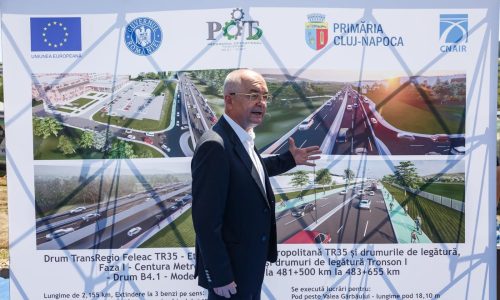Romania is experiencing a significant period of political instability following the resignation of President Klaus Iohannis on 10 February 2025. This development has sent shockwaves through the country, as it comes in the wake of a series of controversial events that have severely impacted the nation's political landscape.
The Build-Up to the Crisis
The turmoil began in December 2024, when the Constitutional Court of Romania annulled the first round of the presidential election. This unprecedented decision was based on intelligence reports revealing that the election had been compromised by Russian interference. Specifically, far-right candidate Călin Georgescu was found to have received artificial support through coordinated disinformation campaigns, particularly on social media platforms such as TikTok. The aim of these campaigns was to manipulate public opinion and sway the election in Georgescu's favour.
This revelation sparked outrage among both the public and Romania’s political elite. It also raised concerns within the European Union, which has been closely monitoring political developments in its member states for potential foreign influence operations.
Formation of a Coalition Government
In response to the annulled election and growing uncertainty, Romania’s mainstream political parties moved swiftly to restore stability. In December 2024, a coalition government was formed, comprising the pro-European Social Democratic Party (PSD), the National Liberal Party (PNL), the Save Romania Union (USR), and the Democratic Alliance of Hungarians in Romania (UDMR). Marcel Ciolacu, leader of the PSD, was appointed as Prime Minister, tasked with navigating the country through this volatile period.
The coalition’s immediate priority was to restore trust in the electoral process and ensure that a fair and transparent presidential election could be held. However, the challenges faced by the new government proved to be immense, as tensions continued to rise within both the political sphere and the general population.
President Iohannis's Resignation
Despite efforts to stabilise the situation, Romania’s political crisis deepened, culminating in the resignation of President Klaus Iohannis. Iohannis, who had been in office since 2014, was nearing the end of his second term. While his decision to step down was unexpected, political analysts suggest that it was driven by mounting pressure and a desire to allow fresh leadership to guide Romania out of its current predicament.
His resignation has left Romania in a state of uncertainty, as the country must now prepare for new presidential elections under an atmosphere of heightened political tension. The government must ensure that the upcoming election is free from external interference while also addressing growing public frustration over the nation’s political instability.
Implications for Romania and the European Union
The political turmoil in Romania has raised concerns at the European level. The revelation of foreign interference in the country’s electoral process has underscored the vulnerabilities of European democracies to external influence campaigns. EU leaders have expressed their support for Romania in ensuring electoral integrity and have called for stronger measures to counteract foreign meddling in member states' democratic processes.
For Romania, the immediate priority is to restore public confidence in the political system. The coalition government must act decisively to implement electoral reforms, strengthen cybersecurity measures, and ensure that the upcoming presidential elections proceed transparently and fairly. Failure to do so could further destabilise the country and erode trust in democratic institutions.
What Comes Next?
The coming months will be crucial for Romania as it navigates this political crisis. The interim government will need to work efficiently to organise new presidential elections while maintaining national stability. Additionally, political parties must focus on addressing the concerns of the electorate, who have grown increasingly disillusioned with the political process.
As Romania stands at this critical crossroads, the nation’s leaders face the immense challenge of steering the country towards a future of political stability and democratic resilience. The outcome of this crisis will not only shape Romania’s future but also serve as a significant case study for the broader European response to election interference and political manipulation.



